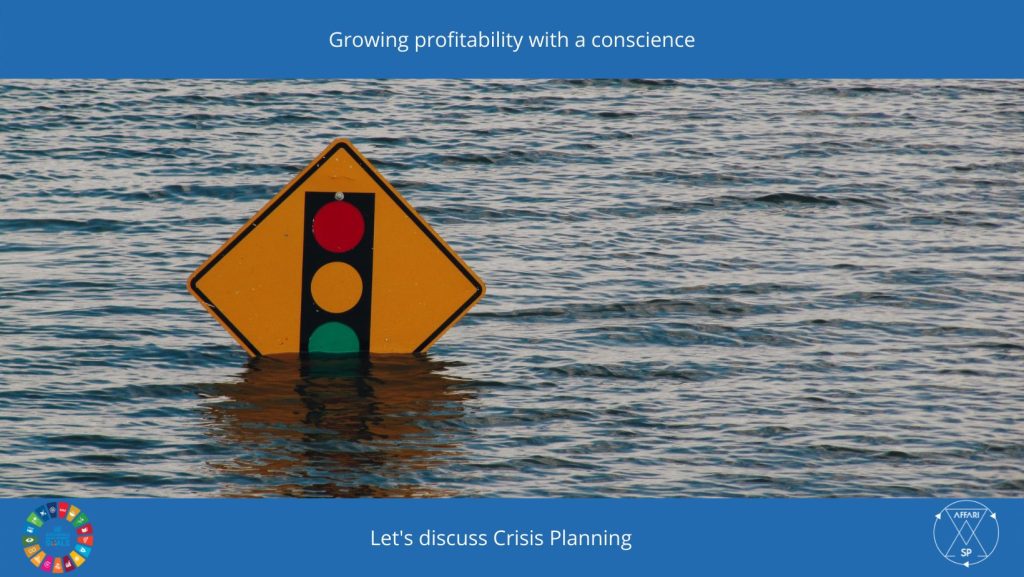Crisis Management Planning
 |
|
What is a crisis?
A time of intense difficulty or danger?
So, in business, a crisis is related more to a significant adverse event with possible reputational damage.
An out-of-the-ordinary event, disclosure or set of circumstances, real or perceived, which seriously threatens safety, disrupts the activity or negatively impacts the reputation of a business or customer patronage.
It will not matter whether it is real or perceived.
Types of crises
Most importantly, are you aware of all the different types of incidents that could threaten your business and reputation?
A crisis, which can last from a few hours to several days or longer, needs decisions to be made quickly to limit damage to an organisation.
Types of crises can include natural disasters, accidental or intentional human-caused events, and technology issues such as cyberattacks.

Why have a crisis management plan
A crisis management plan will detail all the organisation’s risk areas and respond in a critical situation that negatively affects your organisation.
A crisis management plan allows an organisation to act quickly should an incident occur, with well-documented responses to potentially critical situations.
An effective crisis management plan will include:
- criteria used to determine if a crisis has occurred
- monitoring systems to detect early warning signals,
- contingency actions
- list of emergency contacts
- specify who will be the spokesperson in the event of a crisis
- strategies for everyone to know their role during and after a crisis
Having a plan will not avoid an incident but will minimise the impact of adverse reputation outcomes and guide how to manage and recover from incidents.
Right, now is a great time to prepare a crisis management plan and be ready for the recovery of COVID19 and have contingencies to deal with the employee well being and any matters arising from bringing the team back to the office.

Recovery is more clear with a crisis management plan.
As a result, after a significant adverse event, a crisis management plan could be the difference between your organisation being left vulnerable by highlighting the organisation’s and systems weaknesses or coming out more resilient.
Thus, leading to enhance the organisation’s capacity to retain its state and function despite external disruptions and adapt and transform from these events and be better equipped to undergo future changes.
Crisis Management Planning Read More »




